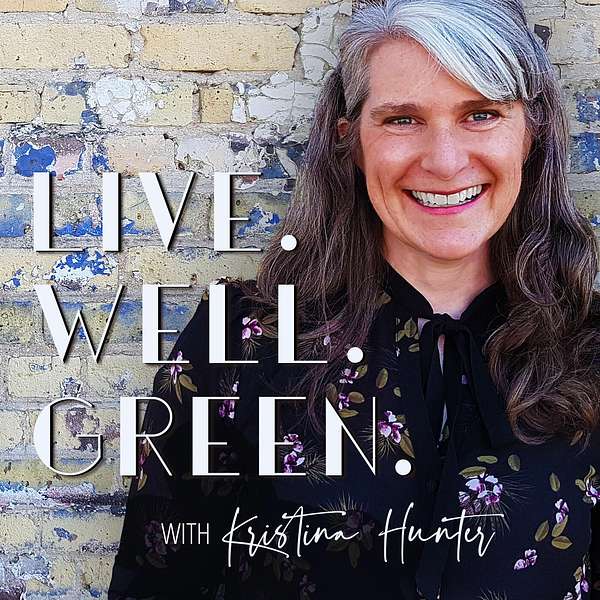
Live. Well. Green.
Live. Well. Green.
Episode 80: Applying Voluntary Simplicity to environmental action
Do you sometimes wish that someone would just tell you the right thing to do when it comes to taking environmental action? It can be so darn complicated it seems. Every day there is another new campaign or cause, and they all seem important.
Easy to feel torn in multiple directions. And it doesn’t help with the Eco-overwhelm! So I want to show you how to apply the concept of Voluntary Simplicity to direct your actions.
What is Voluntary Simplicity?
Voluntary Simplicity, despite being linked to the simple living and minimalism trends of de-cluttering and creating homes that look like no one actually lives in them, it is actually an idea rooted in the environmental movement.
Back in 1981, the Book Voluntary Simplicity, by Duane Elgin, helped people to address their over-cluttered lives, looking at the environmental and social issues of consumer culture, and finding ways to approach family life, work, and our inner lives.
The premise then which still holds today is that consumer culture is not only disastrous for the planet, it also leaves us deeply unhappy and longing for something better. The basic principles are to first pare down - in terms of possessions, but also our schedules, and to-do lists, in an effort to free ourselves up to make more connections.
We can then have the time and space to foster deeper, more meaningful and rewarding connections to others, to ourselves, our communities and to nature.
Voluntary Simplicity is described as “life that is outwardly simple yet inwardly rich.”
The term, however, was first coined by social philosopher Richard Gregg, in his 1936 essay on the topic. In which he writes:
"Voluntary simplicity involves both inner and outer condition. It means singleness of purpose and sincerity and honesty within, as well as avoidance of external clutter, of many possessions irrelevant to the chief purpose of life.
It means an ordering and guiding of our energy and our desires, a partial restraint in some directions in order to secure greater abundance of life in other directions. It involves a deliberate organization of life for a purpose.
Of course, as different people have different purposes in life, what is relevant to the purpose of one person might not be relevant to the purpose of another...The degree of simplification is a matter for each individual to settle for himself.”
What if doing the work that matters involves only two things? First, and foremost, take care of your body (mind included), and do the work where you can have the most impact. (Yes, I am talking about the Eco-Ikigai principle covered in EP 79.)
What if it is just that simple?
- take care of yourself
- do the work where you can have the most impact
If you want more on Voluntary Simplicity and how to apply it to all aspects of your life, head back to EP 39 Simplify to Amplify.
If you are interested in exploring these issues further, head on over to my website, KristinaHunterFlourishing.com.
Hit the “let’s chat button” if you are a professional woman and are deeply concerned about climate change and the state of the world that we are leaving to future generations and want some guidance on the best steps to take.
I would LOVE to connect with you!
While you are there, sign up for the Flourishing Fridays newsletter. It is your weekly guide to Sustainable Wellbeing and effective environmental action.